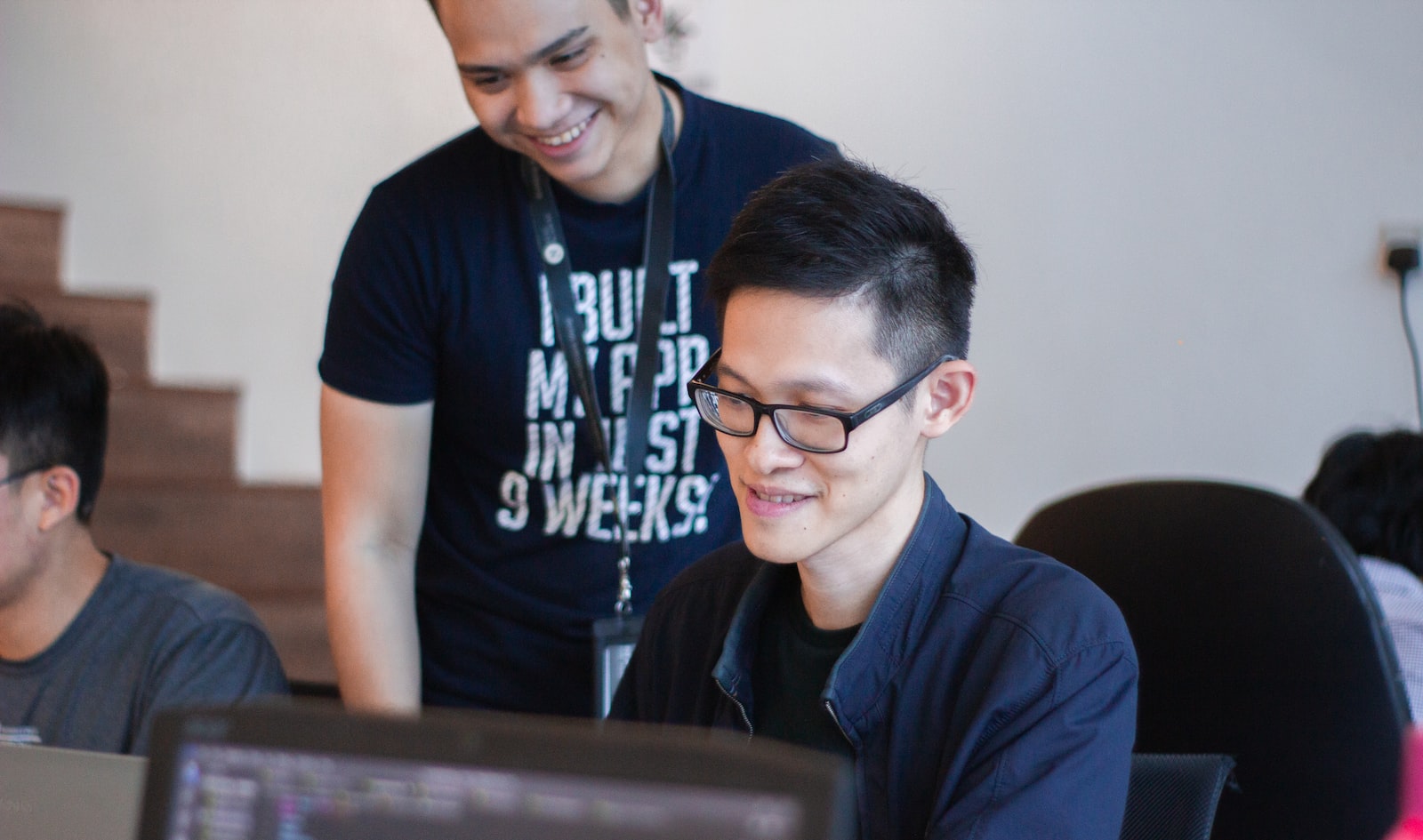What's the difference between coaching and mentoring?
How to tell if you need a mentor or a coach.
Coaches and Mentors have a common goal: helping people grow in the right direction. Both coaching and mentoring provide individuals with a unique chance to take charge of their own personal and professional development.
In this article, we’ll explore the key differences between coaching and mentoring so that you can decide which method is best suited for your needs.
What is a coach?
A coach is someone who helps another person to develop and achieve their goals. Coaching is a relationship between a coach and a client in which the coach uses their experience and expertise to help the client.
A coach does not give advice or tell the client what to do; instead, they help the client to develop their own solutions and action plans. A coach is someone who believes in the potential of their clients and is committed to helping them to grow and develop.
Coaching is usually provided on a one-to-one basis, but it can also be provided in groups, via video conferencing (e.g. on Zoom) or via email or telephone. Coaching is typically used for personal development, but it can also be used for career coaching or performance coaching. For example, a sports coach would help an athlete to improve their performance, while a business coach would help an entrepreneur to start and grow their business.
Coaching is a commitment to personal growth and development that can have a profound impact on the quality of an individual’s life. It is an investment in yourself that can be one of the most rewarding things you ever do.

Can a coach be a mentor?
Coaching and mentoring are two distinct but related professional development activities. A coach helps an individual to improve their performance in a specific area, while a mentor provides guidance and advice on a range of issues, including career development.
While a coach may act as a mentor, the two roles are not the same.
Mentoring is for holistic development, coaching is for measurable skill improvement.
A mentor-coach relationship is more personal and focused on long-term development, while a coaching relationship is more task-oriented and focused on immediate performance goals. However, both coaching and mentoring can be beneficial to the development of individuals and teams.
When used effectively, coaching can help individuals to identify strengths and weaknesses, set goals, and develop action plans for improvement. Mentoring can provide guidance and support on a range of issues, helping individuals to navigate their career journey.
Mentoring is highly personalised, coaching is repeatable.
Coaching and mentoring are both highly effective methods of personal development, but they differ in some important ways. Coaching is a repeatable process that can be used with anyone, regardless of their individual circumstances.
A coach helps their clients to identify their goals and develop a plan to achieve them. The coach-client relationship is built on trust and mutual respect, and the coach provides support and guidance throughout the process.
Mentoring, on the other hand, is a more personalised form of development that uses the mentor’s own experiences to guide the mentee. The mentor-mentee relationship is typically much more informal, and the focus is on helping the mentee to grow and learn.
Mentoring is driven by the mentee, coaching is the opposite
The key difference between coaching and mentoring is that coaching is driven by the coach, whereas mentoring is driven by the mentee.
In coaching, the coach takes on the role of an expert who provides guidance and advice to the coachee with the goal of helping them to achieve their objectives. In contrast, in mentoring, the mentor acts more as a sounding board, offering support and advice but allowing the mentee to come to their own conclusions.
Both coaching and mentoring can be beneficial for personal development. However, it is important to choose the right approach for your needs.
If you are looking for someone to provide guidance and advice, coaching may be a better option. However, if you are seeking a more supportive relationship where you can explore your options and make your own decisions, mentoring may be a better fit.

Mentoring is long-term, and coaching is time-bound
Coaching is typically time-bound, meaning that it takes place over a set period of time with the goal of achieving specific objectives.
In contrast, mentoring is more long-term, often taking place over the course of months or even years. As a result, coaching is usually more focused on achieving immediate goals, while mentoring is more concerned with long-term personal development.
For this reason, coaching can be an effective way to achieve personal development goals, but mentoring is often more beneficial for those looking for long-term growth.
Mentoring is non-evaluative, and coaching is evaluative.
Mentoring is typically a more passive process, in which the mentor offers advice and guidance without actively pushing the mentee to change. Coaching, on the other hand, is typically much more evaluative.
The coach works with the client to set goals and tangible measures of progress; they then provide feedback and support as the client works towards those goals. As a result, coaching tends to be more oriented towards immediate results and tangible improvement, while mentoring is more focused on long-term personal development.
Ultimately, both coaching and mentoring can be useful tools for personal growth, but it’s important to choose the right approach for your needs.
The coaching-mentoring-management continuum

At the mentoring end of the continuum, the focus is more on personal development. The mentor provides guidance and support that helps the individual to grow and develop both personally and professionally.
The relationship is built on trust and mutual respect, and the mentor shares their own wisdom and insights in order to help their mentee reach their potential.
The coaching-mentoring-management continuum provides a framework for understanding the different approaches to professional development. By understanding where coaching ends and mentoring begins, businesses can provide the right level of support for their employees.
Mentoring and coaching: What does my business need?

You have new managers to train
When it comes to training and development, an option is to provide coaching and mentoring programs for new managers. This can be an effective way to help them learn the ropes and develop the skills they need to be successful in their role.
The key is to find the right approach for your business needs. If you have new managers who need some extra support, coaching and mentoring could be the way to go.
You have a diversity and inclusion initiative you want to expand or begin.
Diversity and inclusion coaching and mentoring are an important part of ensuring that all employees have the opportunity to develop and reach their potential. Both coaches and mentors can help employees navigate the challenges of working in a diverse and inclusive environment.
By providing coaching and mentoring services, organisations can create a culture of learning and development that values diversity and inclusion.

You have high-potential employees to develop and retain
As a business leader, you know that your high-potential employees are key to your success. You also know that it’s important to invest in their development in order to retain them. But what kind of development program will best meet their needs: coaching or mentoring?
If you want to focus on specific goals and outcomes, coaching may be the better option. If you want to build relationships and foster employee engagement, mentoring may be the better choice.
Ultimately, the decision comes down to what will best meet the needs of your high-potential employees.
You focus on succession planning
As a business owner, you know the importance of succession planning. Whether you’re looking to retire soon or want to ensure that your business can continue to thrive after you’re gone, finding the right successor is essential.
But what does that successor need in order to be successful? That’s where coaching and mentoring come in.
In the business world, coaching can be an important part of learning and development. A good coach will help employees identify areas where they need improvement and then work with them to improve those skills.
Mentoring, on the other hand, is more about sharing knowledge and experience. In the business world, a mentor can be invaluable for someone who is taking on a new leadership role.
By sharing their experiences and knowledge, a mentor can help equip the new leader with the tools they need to be successful.

You have an existing development program that could be enhanced
If you have an existing development program in place, you may be wondering if adding coaching or mentoring would be beneficial. The answer will depend on the goals of your development program and the needs of your employees.
If your development program is focused on specific skills training, coaching can be a great way to help employees improve those skills. If your development program is more about building relationships and fostering engagement, mentoring may be the better option.
There is no one-size-fits-all approach. The key is to find the right option for your business needs.
What are the benefits of coaching and mentoring?

When it comes to coaching and mentoring, there are MANY POTENTIAL BENEFITS for both the organisation and the individual.
Some of the benefits of COACHING include
- Improved performance
- Increased job satisfaction
- Greater engagement
- Improved retention
Some of the benefits of MENTORING include
- Increased knowledge and skills
- Improved ability to navigate the organisation
- Improved relationships
- Greater engagement
In summary, coaching and mentoring are two of the most effective tools for personal development. They provide a structure for LEARNING and GROWTH, and the key is to find the right option for your development needs. Ultimately, the decision comes down to what will best meet the needs of the individual.

